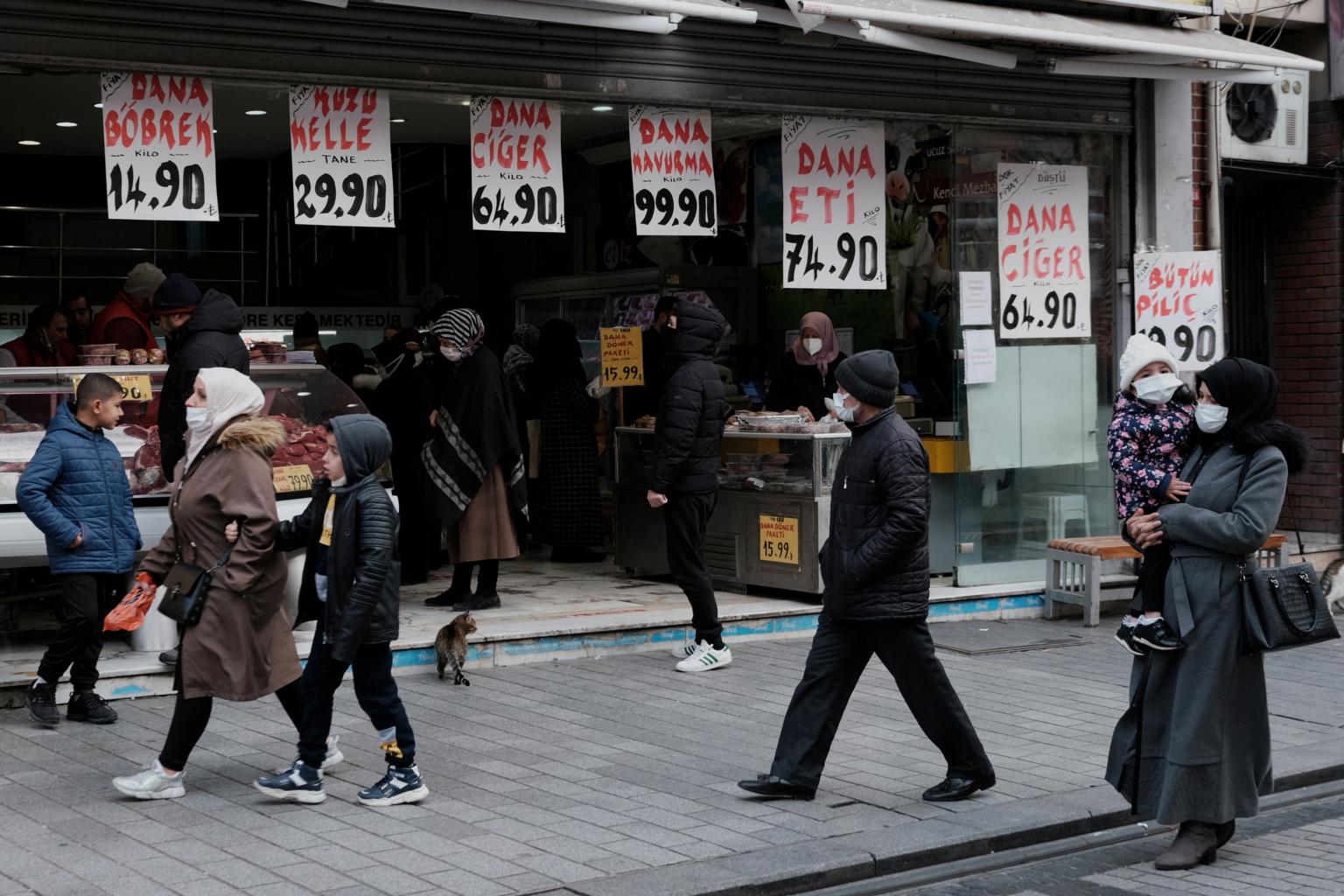Turkey's inflation soars to 70% in April, driven by energy and food
Sign up now: Get ST's newsletters delivered to your inbox

Month-on-month, consumer prices rose 7.25 per cent.
PHOTO: REUTERS
ISTANBUL (REUTERS) - Turkey's annual inflation jumped to 69.97 per cent in April, above forecast and at a two-decade high, according to data on Thursday (May 5), fuelled by the Russia-Ukraine conflict and rising energy and food prices after last year's lira crash.
The currency slide was triggered by a 500 basis point-easing cycle which began last September under pressure from President Tayyip Erdogan, triggering the sustained surge in consumer prices.
Month on month, consumer prices rose 7.25 per cent, the Turkish Statistical Institute said, compared with a Reuters poll forecast of 6 per cent. Year on year, consumer price inflation was up from 61.1 per cent in March.
The surge in consumer prices was driven by a 105.9 per cent leap in the transportation sector, which includes energy prices, and a 89.1 per cent jump in food and non-alcoholic drinks prices, the data showed.
Month on month, food and non-alcoholic drink prices rose the most, with 13.38 per cent, and house prices rising 7.43 per cent.
The government has said inflation will fall under its new economic programme, which prioritises low interest rates to boost production and exports with the goal of achieving a current account surplus.
However, economists see inflation remaining high for the rest of this year due to the Ukraine war, with the median estimate for inflation at year-end standing at 52 per cent. The current account deficit also widened sharply at the start of the year.
Inflation has continued to rise despite tax cuts on basic goods and government subsidies for some electricity bills to ease the burden on household budgets.
Last week, the central bank forecast annual inflation will peak at around 70 per cent by June before declining to near 43 per cent by year-end and single digits by end-2024.
The central bank held its key policy rate steady at 14 per cent in four meetings this year and said measures and policy steps will prioritise so-called liraisation in the market.
The domestic producer price index climbed 7.67 per cent month on month last month for an annual rise of 121.82 per cent.


